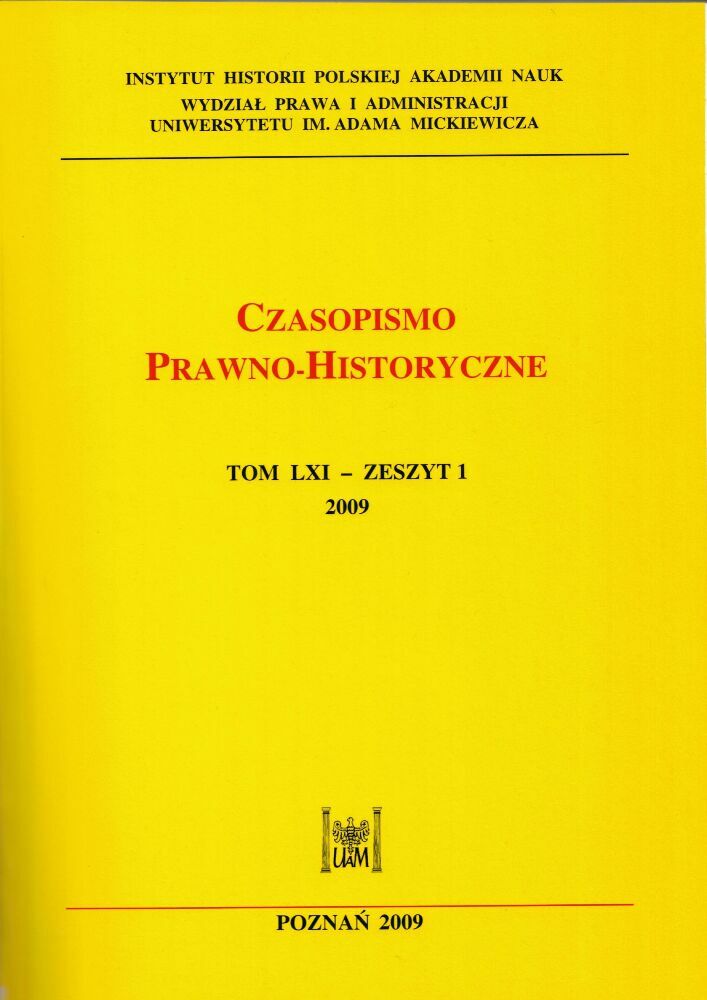Abstract
The reform of inheritance law proposed by Emperor Justinian in his 115th Novel from 542 AD extended on the issue of disinheritance of both, the descendants and ascendants, of the te[1]stator. Justinian believed that the general exheredationis motive in respect of ascendants was similar to that which provoked disinheritance of descendants, i.e. that the disinheritance of either was caused by their ingratitude to the testator. However, he also noticed that a harmful behaviour of ascendants towards descendants or their negligence to exercise a duty of care arising from officium pietatis might also be a sufficient reason for disinheritance. The catalogues of reasons for disinheritance of descendants and ascendants vary in size and range. Grounds on which the former could be disinherited are listed in the 115th Novel and cover 14 fair reasons for that. The catalogue of reasons for the disinheritance of the latter, which is subject of this paper, is presented in chapter four. It identifies only eight reasons that justify disinheritance of the ascendants. They are as follows: 1. if the ascendants have delivered their descendants up to death; 2. have attempted to deprive them of life; 3. where a father has had a sexual relation with his son's wife or concubine; 4. where the ascendants have prevented their children from disposing, by will, of property which they had a right to bequeath; 5. where one has attempted to kill the spouse; 6. if they have neglected to care for an insane descendant; 7. have failed to ransom their captured descendants; 8. where a descendant belonged to the orthodox faith and the parent or parents did not acknowledge its doctrines.
Funding
Digitalisation and OA co-funded by the Minister of Education and Science (Poland) under contract no. BIBL/SP/0002/2023/1
License
Copyright © by Faculty of Law and Administration, Adam Mickiewicz University, Poznań, 2009OPEN ACCESS




